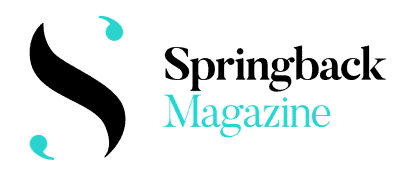Springback Academy 2019
Feature

Learning From difference
During three days, packed with twenty-one performances, audiences at Spring Forward 2019 saw artists from twelve European countries. Some shows were well-crafted and finely staged but also, ultimately, hollow and forgettable. The most remarkable ones tended to explore two themes: self-exposure of female identity, and the many potentials of human movement. The importance of both is undeniable – we still need to renegotiate gender in dance, and question how shared the power of motion actually is.
Commenting on the popularity of dance in contemporary culture, UK arts journalist Sarah Crompton emphasises its democratising power and reminds us that movement is “the one language we all speak”. At Spring Forward 2019 I wondered how we can unravel this truism to capture dance’s role in our changing societies?
What emerged during various performances – whether presented on conventional stages, or in museums and other less regulated sites – was the opportunity to engage in a shared emotional experience. Effectively immersed, we were able to empathise with different and unknown bodies, and discover some of the meanings, usually other than the literal, that they conveyed.
In her solo Cellule the French choreographer Anne-Marie Van aka Nach used body movement (krump) and visual content (photos and sounds of riots and DIY webcam footage of herself) as tools to show the struggle of becoming one’s self in a conflicted, complex society. While Cellule was powerful in its simplicity and honesty, Nach’s openness never crossed the line of narcissism or pretension. Her choices were adamant, her presence truly empowering.
Laced with self-aware naivety and subtle humour, Chiara Bersani’s solo Seeking Unicorns was staggeringly uncompromising. Bersani, a wheelchair-user, embodied a kind of unicorn. On her knees, and with hoof-like fists, she crawled towards the audience spread out before her in a gallery setting. Sometimes she stopped to buck a back leg, or shake an imaginary tail. Presenting her movement potential so evidently different from most of us she taught us about the ingenuity of difference. Often maintaining direct eye contact with spectators, Bersani exposed us more than herself: we could observe each other observing her in a disarming display of the collective gaze.
In contrast, Renata Piotrowska-Auffret’s The pure gold is seeping out of me wasn’t a solo. The choreographer and two other dancers (Ola Osowicz and Karolina Kraczkowska) inhabited the strife of contemporary females wishing to engage with in vitro fertilisation. Based on both Piotrowska-Auffret’s own experience and interviews with other women, the performance raised multiple voices in what amounts to a political discussion of reproductive rights in Poland. The result, however raw and uncomfortably horrific, was stricking and cogent.
Katerina Andreou’s BSTRD, although exhausting and deafening, was yet another gesture of female empowerment. Aligned to the pulsating, rough rhythm issuing from a vinyl record she set herself, the dancer bounced about on an elevated boxing ring. She was a bastard, nonchalant and unapologetic, tiring us with her perpetual jumps and occasionally flashing a mischievous grin. This sexy tomboy, genderless yet feminine, dominant and seductive, was who she chose to be, and so she danced as she wished, never minding our discomfort or ennui.
Here I’ve offered my responses to only 4 out of 21 shows. Unfortunately, many productions during my three days in Val-de-Marne were repetitive, self-congratulatory and disturbingly uninterested in the audience’s experience. In a way, the issue of monotony and self-indulgence in contemporary dance could not have been more obvious. Is it perhaps futile to even comment about it?
I choose instead not to be passive but, armed with doubts and curiosity, I return to the memories and sensations given to me by my most fruitful experiences in France. Spring Forward is all about Europe, and the organisers expressed hope for signs of change introduced by young artists. Seeking solidarity for a continent in crisis has value, but let’s not forget that our current struggles are partly caused by arrogance. The universality of dance may teach us to surpass our boundaries, but we must wish to learn more than we already know and look outside ourselves. This year’s platform gave us the possibility to encounter otherness, and I was delighted to find myself in a place of unknowing and learning.

